What I’m thinking about
In this newsletter, I talk a lot about my mom but less often about my dad, who died suddenly when I was very young. But yesterday was Father’s Day in the United States, and so I spent some time reflecting on how his role in our family has been defined by how we’ve adapted to his absence.
My mom raised me as a single parent, but she didn’t raise me alone. She depended on several kinds of paid, non-family caregiving help throughout my childhood, including a live-in nanny, an au-pair, and dozens of babysitters, summer camps, and before- and after-school programs.
This elaborate caregiving infrastructure has a new analogy in her later life: I care for her as an only child, but I don’t care for her alone, either. I’ve depended on paid, non-family caregiving help from the staff at senior living facilities for the last three years. (Neither of us have cared for the other with much unpaid help from extended family.)
My father’s absence is the biggest feature of my family structure – and of my mom’s and my caregiving circumstances: It has concentrated our burdens and increased our dependence on paid help. There is no right answer about how to balance our caregiving responsibilities with the rest of our lives, but I am interested in the impact that our family structures have on the choices we make about it.
I’d love to hear about your family structure, and the impact it’s had on the caregiving you do. Simply reply to this email to share it with me.
Talk soon,
Libby
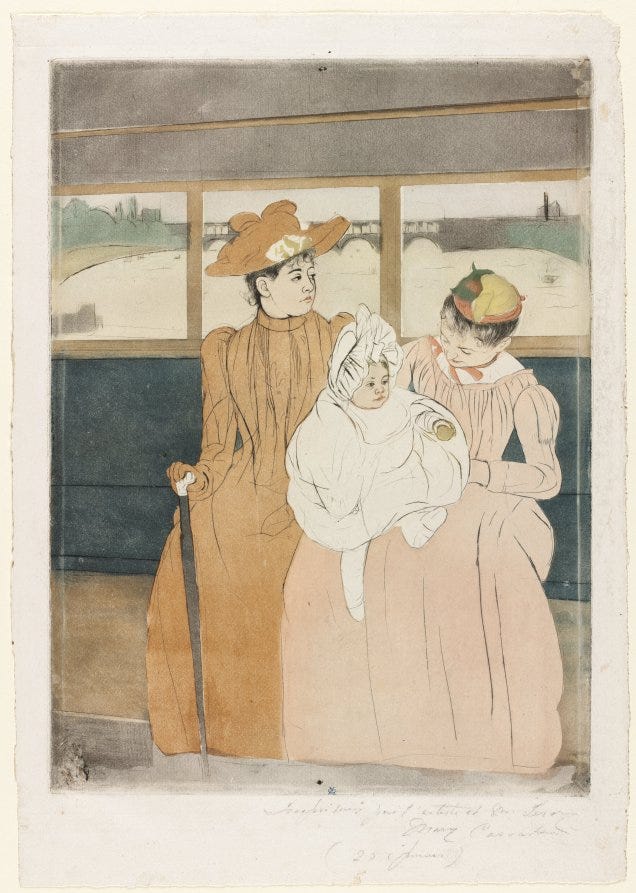
In the Omnibus, Mary Cassatt, 1890-91 (Cleveland Museum of Art)
What I’m reading this week
One Good Resource
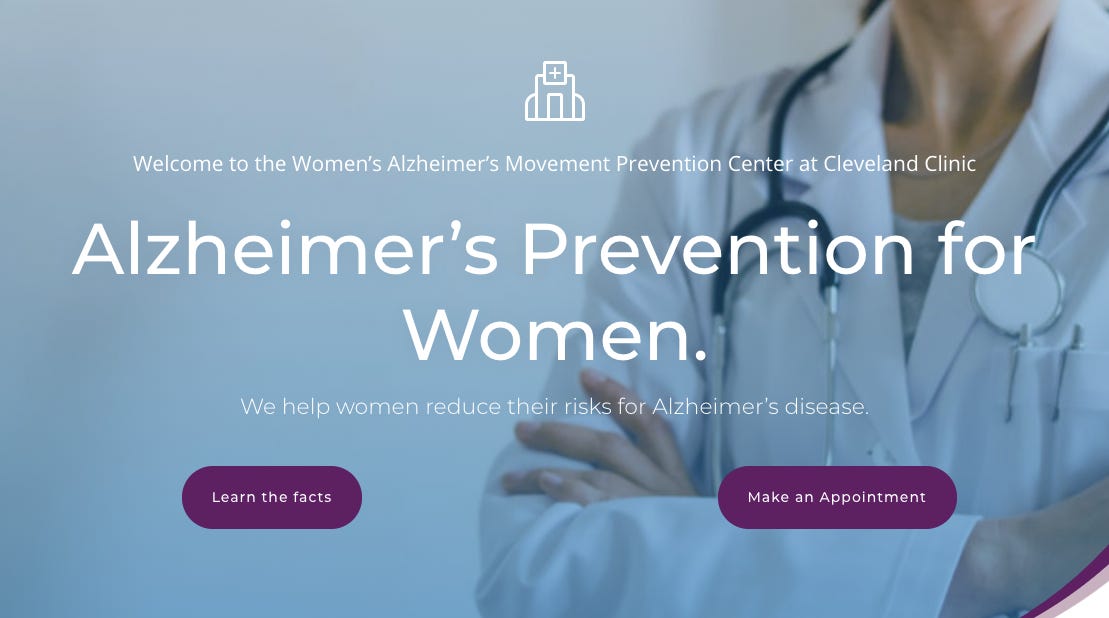
The Women’s Alzheimer’s Prevention Center opened this week. This specialty clinic – which is located at Cleveland Clinic’s Lou Ruvo Center for Brain Health in Las Vegas, NV – uses a combination of online and in-person services to help prevent women from developing cognitive impairment in later life.
One Good Quote
“I imagined two people without words, unable to speak to each other. I imagined the need: The color of the sky that meant 'storm.' The smell of fire that meant 'Flee.' The sound of a tiger about to pounce. Who would worry about these things?
“And then I realized what the first word must have been: ma, the sound of a baby smacking its lips in search of her mother's breast. For a long time, that was the only word the baby needed. Ma, ma, ma. Then the mother decided that was her name and she began to speak, too. She taught the baby to be careful: sky, fire, tiger. A mother is always the beginning. She is how things begin.”
An excerpt from Amy Tan’s The Bonesetter’s Daughter, which was included in the most recent issue of my friend Dayo Olopade’s newsletter, Two Nouns.
One Good Book
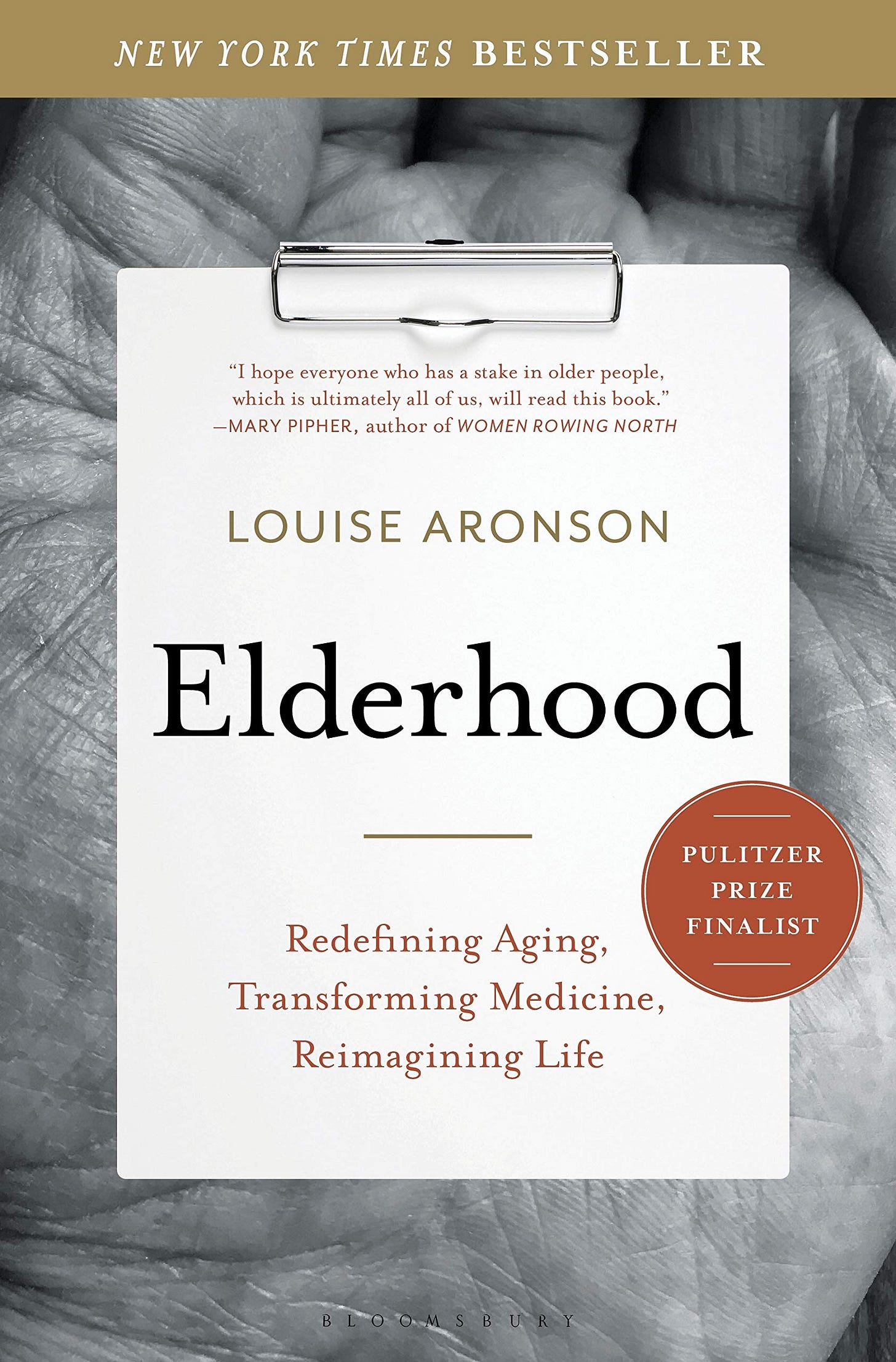
“Elderhood: Redefining Aging, Transforming Medicine, Reimagining Life” by Louise Aronson
This well-rounded and well-written book is the first one that I recommend to people who ask for help starting a conversation with their parents about getting older. It gently frames aging as more than a biological process – putting it into context alongside the other profound personal and cultural experiences it creates.
One Good Ad
I’d love to share your business, product, or service with the people who read this newsletter. Reply to this email to get in touch.
Are you worried about your parents? I want to help. Through my business, Quilt, I offer a new kind of online support for people who care for their aging parents that includes phone or video check-ins & unlimited support over email.
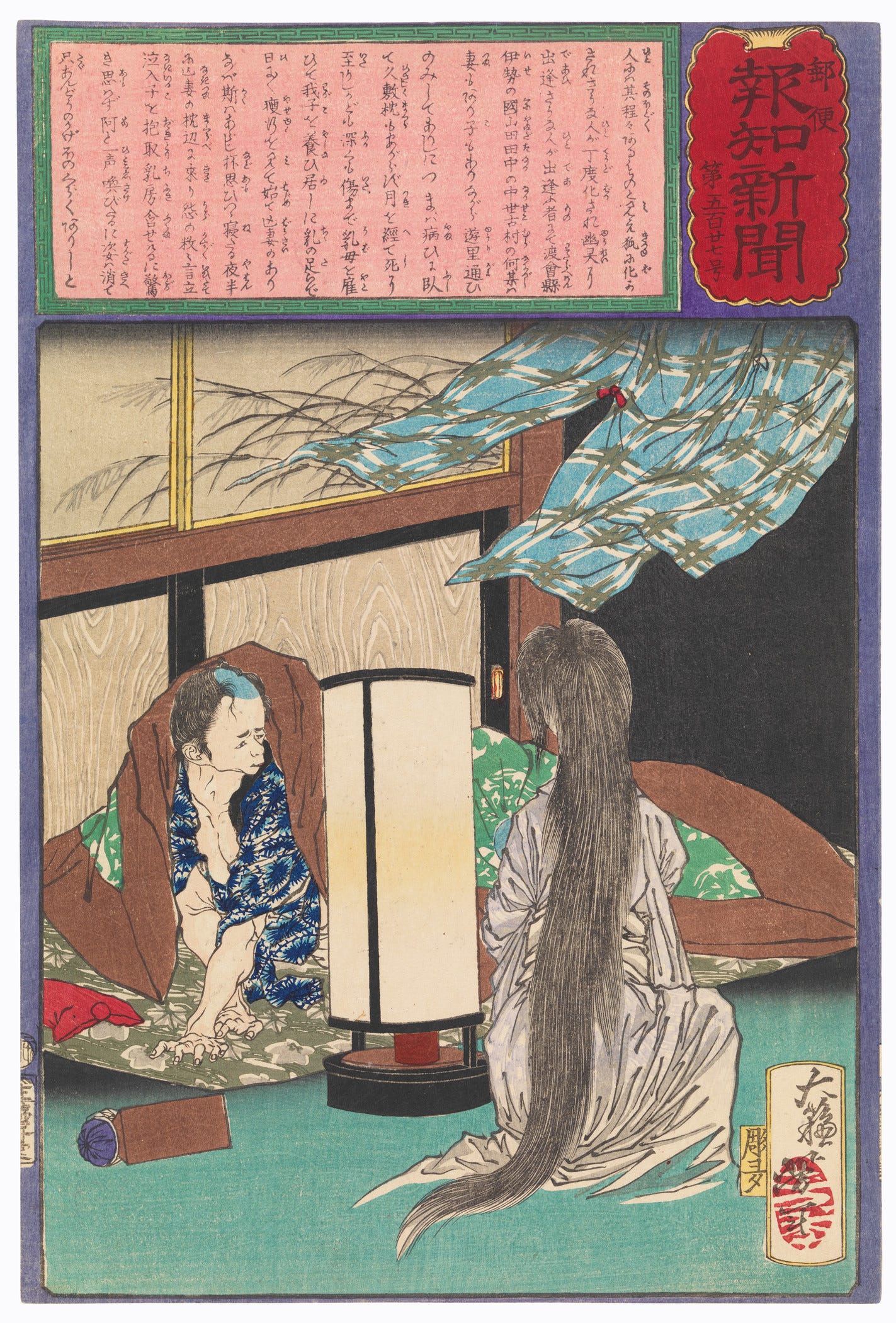
A Widower Witnesses His Wife's Ghost Nursing Their Child, Tsukioka Yoshitoshi, 1875 (Los Angeles County Museum of Art)
One More Thing
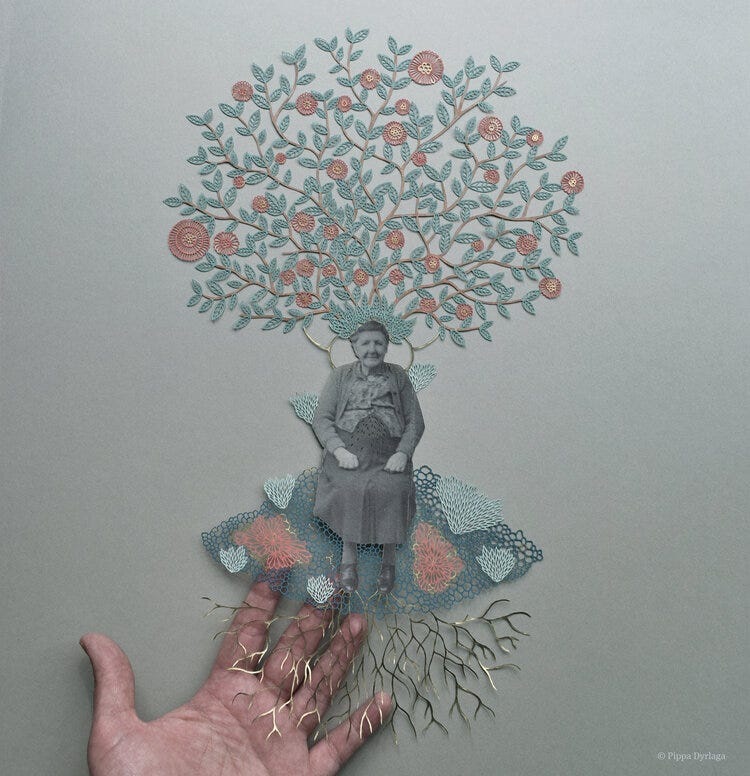
I came across Pippa Dyrlaga’s paper cut artwork a few years ago on Instagram, where she’s at @bearfollowscat. She’s done a few recent series using found photographs, like the one above called “Memory Fruit,” which “reflects on dementia and memory.”



